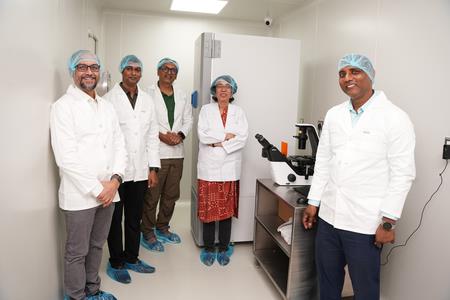
IIT Delhi Launches BSL3 Lab To Foster Research On Highly Infectious Pathogens
The new facility will facilitate research on diagnostic devices and therapeutics for class-3 pathogens, marking the first such initiative among leading educational institutions in India.
The achievement represents a major stride in India's biomedical research capabilities and reaffirms IIT Delhi's commitment to driving innovation in healthcare technology.
“This new research and testing facility will enable research and innovation in medical diagnostics and therapeutics and support IIT Delhi's efforts to cater to academia and industries alike in the domain of healthcare research, bringing in scientists and engineers on a single platform to carry out cutting-edge research. It will open up several opportunities for research collaborations with medical institutes in NCR and across India,” said Prof. Arvind Nema, Deputy Director (Operations), IIT Delhi.
The newly launched research facility is located within the Micromodel Complex on the campus under the umbrella of the IIT Delhi's Central Research Facility (CRF). It would be available for researchers from academia and industry alike on a paid basis as per CRF norms for short- to medium-haul on an assisted basis.
The BSL3 research facility would benefit startups and MSMEs immensely, as they can take up their hardware and personnel inside the facility for speedy iterations without investing in such specialised facilities.
“We are proud to offer a new dimension to the medical diagnostics ecosystem at IIT Delhi. Unlike other such BSL3 facilities in India, this would mark the first time a user can take their medical device inside the unit and test it under the supervision of trained professionals having expertise in class-3 pathogen handling. This will enable hardware and software engineers to debug and fine-tune their diagnostic platform within the facility," said Prof. Sandeep K. Jha from the Centre for Biomedical Engineering, who is also the faculty-in-charge of the facility.
"This type of assisted entry has not been available in the country before, so device developers had to send their products to specialised BSL3 and BSL4 labs for testing, which made it hard to quickly fix and improve device performance,” said Prof. Ashok K. Patel from the Kusuma School of Biological Sciences at IIT Delhi, who co-led this initiative.

Legal Disclaimer:
MENAFN provides the
information “as is” without warranty of any kind. We do not accept
any responsibility or liability for the accuracy, content, images,
videos, licenses, completeness, legality, or reliability of the information
contained in this article. If you have any complaints or copyright
issues related to this article, kindly contact the provider above.


















Comments
No comment